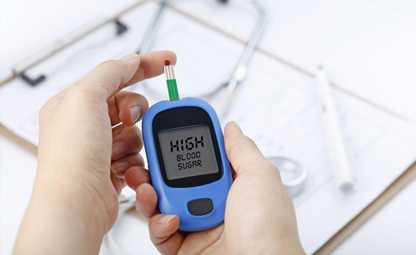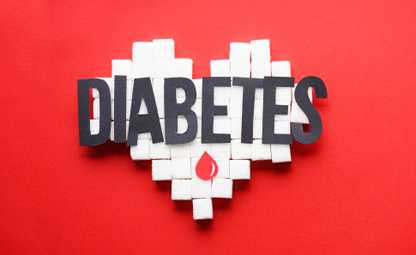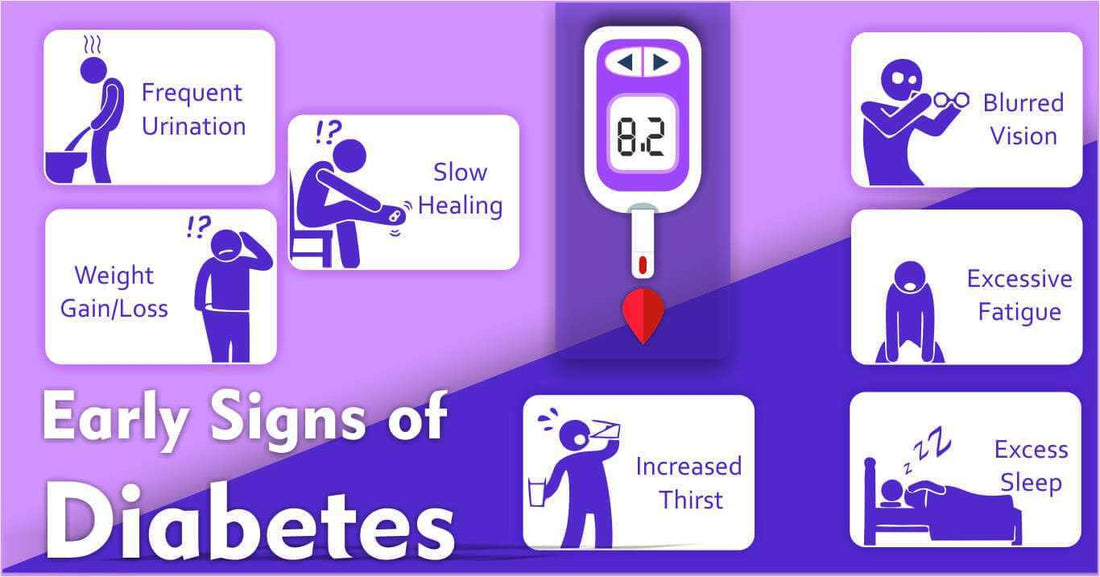Diabetes is also known as diabetes mellitus, it is a group of metabolic illness, which comes with the high blood sugar level that may be due to either inadequate insulin production or the cells becoming insensitive to insulin or both.
Pre-diabetes is a warning sign of diabetes when the blood glucose level is slightly higher from the normal range but not as high than that of a diabetic state.
Insulin keeps control on the level of glucose and regulates the glucose level in the body. It is a hormone secreted by the pancreas, which allows the body to use glucose from the food we eat to provide energy or store it for future use.
Insulin is the most potent hormone in the body, without it blood sugar rises dangerously high. It is an important hormone for metabolism and energy utilization of ingested food. Insulin is made up of peptide chain of amino acids. It is produced in the pancreas by the islets of Langerhans.
Symptoms of Diabetes:
• Having the urge to urinate frequently or excess urination
• Feeling thirsty or dehydrated all the time due to excess urination
• Feeling lethargic and abnormally tired
• Drastic weight loss without intentionally trying to lose it
• Itching in the genital area or reproductive organs
• Blurred or unclear vision
• Delay in wound healing
Leaving diabetes untreated, may cause serious health issues like nerve damage, pancreatic damage, loss of hearing, diabetic ketoacidosis and eventually it may lead to coma and death.

Factors that make a person susceptible to Diabetes:
• Age over 40 years
• Genetically present in the family blood line
• High blood pressure
• Being Overweight (more belly fat)
• Low physical activity and a sedentary lifestyle
• Had gestational diabetes during the time of pregnancy
Diabetes can be reversed, delayed or prevented by losing weight, getting physically active and by including healthier food in your daily diet.
Diabetes Cure:
A complete and comprehensive cure of diabetes is yet to be discovered. Type-2 diabetes is, however, manageable through fitness, meal planning along with some medications and supplements and sometimes by performing gastric bypass surgery. But the cure for Type-1 diabetes is still uncertain and elusive.
Scientist and researchers are in search of a complete cure and are developing a vaccine against Type-1 diabetes and it is possible that it may be available till the next decade to provide a biological cure.
Apart from all these, alternate system of medication or Ayurveda also provides almost complete cure of diabetes. There is a wide range of herbs that are exceptionally useful in diabetes such as gooseberry or amla, cinnamon, gokhru, medhashingi, giloy, bitter melon or karela etc. and treat the disease at the root cause level.
Types of Diabetes:
Type-1 Diabetes
In this type of diabetes, the immune system erroneously starts attacking the beta cells of the pancreas and very little or no insulin is released from the damaged beta cells. Thus, a glucose build-up freely circulates in the blood without being used by the cells. Type-1 diabetes often appears in adolescence or childhood but less in adults. Hence it is also known as a juvenile diabetes. Type-1 diabetes always requires insulin to control the blood glucose level.
Type-2 Diabetes
Type-2 diabetes, appears when the body is unable to use the released insulin (insensitivity towards insulin) or there is insufficient amount of insulin secreted causing sugar to get accumulated in the bloodstream. Type-2 diabetes may occur at any age but is more prevalent in adults. This type of diabetes can be managed through physical activity, medication, natural treatment or insulin and meal planning.
Gestational Diabetes
It is a temporary diabetic condition which happens during pregnancy. It goes away after the child birth and is due to the high level of hormones. It occurs between 24-28 weeks of pregnancy or the second half of pregnancy.
Diabetes Do’s:
Whatever we do in our day to day life significantly impacts diabetes, including our sleeping or eating pattern. Here are some easy do’s and don’ts to be followed for the better diabetic health:

- Exercise: Regular physical activity keeps diabetes and weight under control. According to various studies, it is found that just 30 minutes of brisk walk daily is enough to maintain health.
- Quit Smoking: Diabetes already gives rise to secondary illnesses such as heart diseases, stroke, etc. so smoking may worsen the condition.
- Check blood sugar level regularly and take timely medication.
- Do keep in handy some fruit juice, candy, honey or sugar in case of sudden dip in blood glucose level. Always have some healthy snacks in between the 3 main meals.
- Start consuming herbs which naturally induce insulin production and control sugar fluctuations. Supplements with herbs can help balance out sugar naturally and also protect the kidneys and liver which get damaged due to allopathic treatments of Diabetes.
- Wear or carry any medical I-card related to diabetes so that you can get timely help in case of emergency.
- Carry your medication and supplements and blood sugar measuring devices with you always.
- Eat regularly and know more about eating healthy and follow a well-balanced eating pattern with controlled portion sizes.
Don’ts in Diabetes:
- Don’t be afraid while injecting insulin since it is a part of treatment.
- Avoid beverages containing sugar, excess carbohydrates and junk food.
- Don’t starve or eat less than what your body needs since it may lead to hypoglycaemia or low level of blood sugar.
- Do not ignore minor changes during illness. Stay calm and take preventive measures.
- Avoid alcohol since it unnecessarily adds stress and contains sugar.
- Don’t feel neglected or lonely; find a support group or community to get encouraged.
In India, 1 in 5 people are getting affected with diabetes and it is soon going to be an epidemic. Diabetes is easy to prevent but it is tough to live with it since it brings other complicated health issues. Moreover, counting every morsel and carbs, medication, constant monitoring of blood sugar and pricking fingers using needles on a daily basis to check blood sugar is not easy. Thus, it is important to search for some useful and long-lasting treatment or cure along with adopting a healthy lifestyle.






